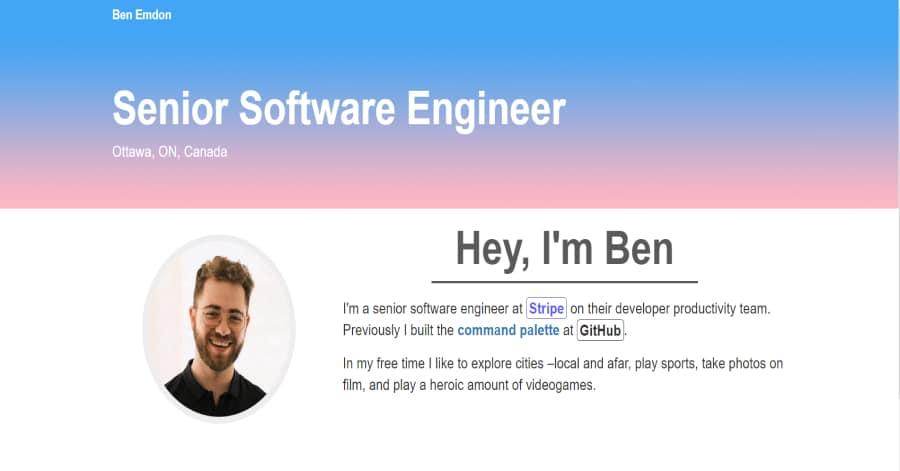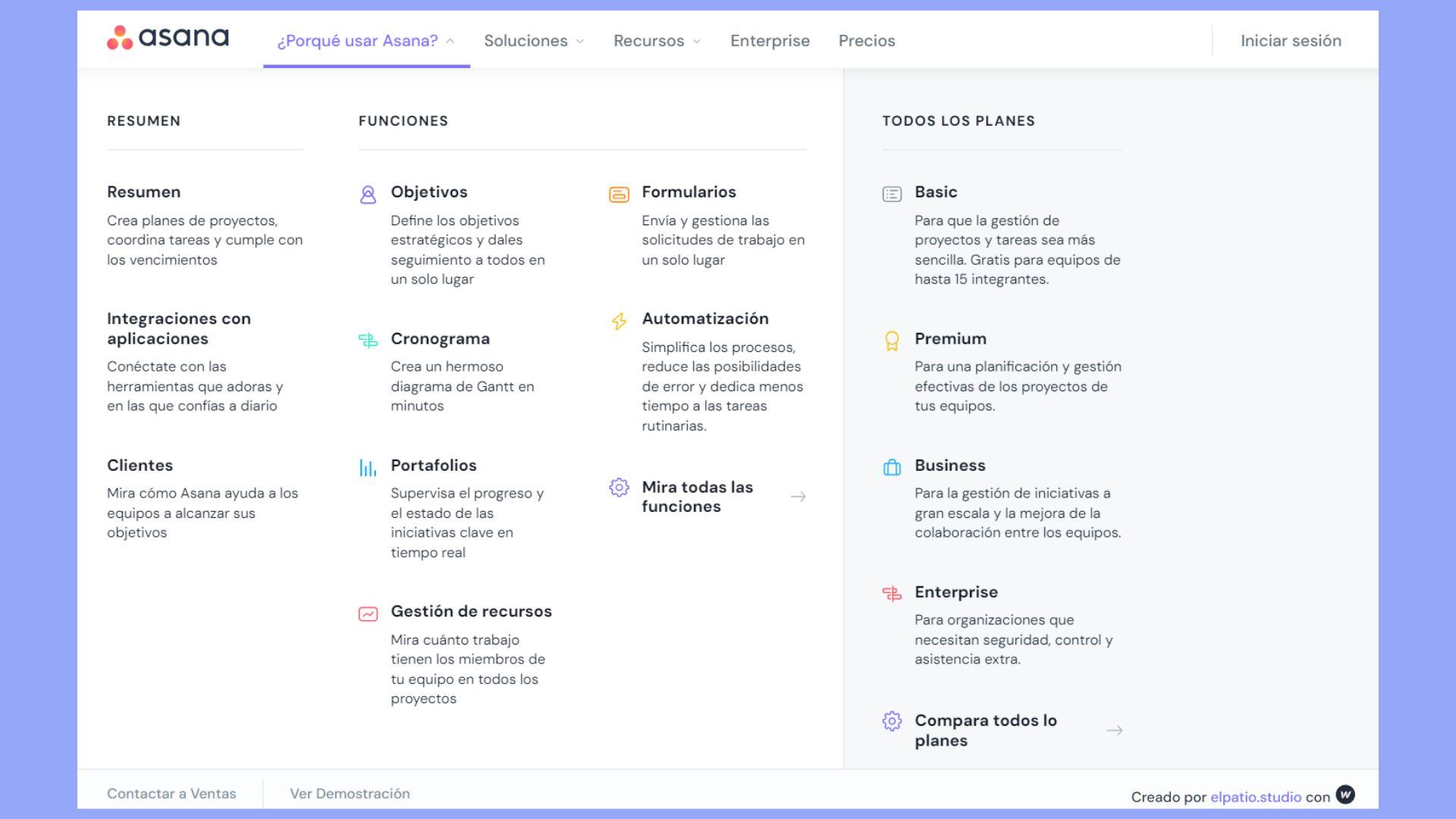Introduction:
Hey there, future web wizards! Are you a student looking to dive into the exciting world of website building but unsure where to start? Well, you’re in the right place! Building a website isn’t just for tech whizzes; it’s a fantastic way to showcase your creativity, develop essential skills, and even earn some extra cash on the side. whether you’re passionate about a hobby,want to share your thoughts with the world,or are considering a side hustle,we’ve got you covered.
In this article, we’ll explore five perfect website ideas tailored just for students like you. Each idea is designed to not only be fun and engaging but also to help you learn invaluable skills that will serve you well beyond your college years. So grab your favorite snack, get comfy, and let’s explore the endless possibilities waiting for you in the digital realm!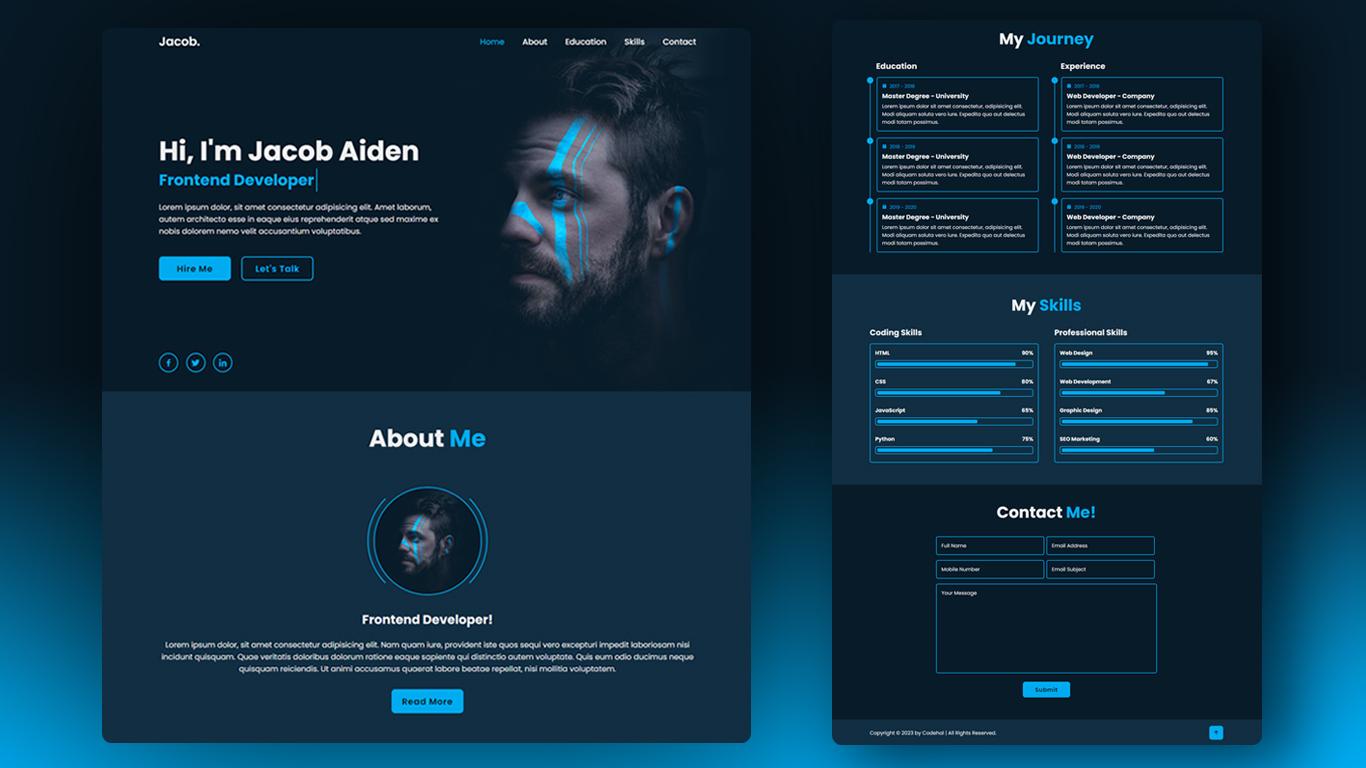
The Power of Portfolio Websites for students
In today’s digital age, having a portfolio website is not just a luxury but a vital asset for students.A well-crafted website serves as a dynamic showcase of your skills, projects, and experiences. It provides a platform to highlight what makes you unique and can open doors to internships, job offers, and networking opportunities that conventional resumes simply can’t achieve.
First and foremost, a portfolio website allows you to demonstrate your creativity and individuality. Unlike a resume which follows a strict format, your website can reflect your personality through its design and layout. You can choose color schemes, fonts, and images that resonate with who you are. This personal touch not only makes your portfolio memorable but also gives potential employers insight into your creative process.
Moreover, a portfolio website acts as an ongoing project that you can continually update. As you gain new skills or complete meaningful projects, you can easily add this content to your site. This versatility is crucial for a student whose work and capabilities are constantly evolving. It allows you to keep your materials fresh and relevant, ensuring that your very best work is front and center.
Additionally, having a dedicated online space enhances your professional presence. It shows that you are serious about your career and willing to invest time and effort into presenting yourself professionally. By including a blog section where you discuss industry trends or reflect on your learning experiences,you further establish yourself as an informed and engaged candidate.
To make your portfolio even more effective, consider these essential elements:
- Clear Navigation: Make it easy for visitors to find what they’re looking for.
- Personal Branding: Use consistent visuals and messaging that represent you.
- Contact Information: Always include a way for potential employers to reach out.
- Interactive Elements: Incorporate videos, slideshows, or animations to engage viewers.
| Feature | Benefit |
|---|---|
| Custom domain | Enhances professionalism and credibility. |
| Responsive Design | Ensures accessibility on all devices. |
| SEO Optimization | Helps your site rank higher in search results. |
Ultimately, a portfolio website can be one of the most powerful tools in your student toolkit. It’s more than just a digital resume—it’s a statement of your aspirations, talents, and commitment to your future career. So why wait? Start building your portfolio today and take the first step towards making your mark in the professional world.
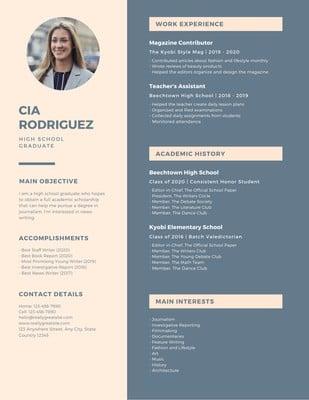
Crafting Your Online Resume That Stands Out
In a competitive job market, having a standout online resume can make a significant difference in how potential employers perceive you. Here are some essential elements to consider when crafting your online resume:
- Clean and Professional Design: Choose a layout that reflects your personal style while remaining professional. Use a simple color palette and easy-to-read fonts to ensure clarity.
- Engaging Content: Highlight your skills, experiences, and achievements in a way that captures attention. Use bullet points for easy navigation and consider adding short anecdotes to demonstrate your abilities.
- Multimedia Elements: Incorporate images,infographics,or videos to showcase your work. A short video introduction can add a personal touch and make a lasting impression.
Additionally, ensure that your online resume is optimized for search engines. This involves using relevant keywords related to your field and skills, making it easier for recruiters to find you. Include a blog or a section for articles where you can share insights related to your area of study or professional interests, further establishing your expertise.
Don’t forget about mobile optimization. Many recruiters review applications through their phones, so a responsive design is crucial. Test your online resume on different devices to guarantee it looks great everywhere.
| Element | Importance | Tip |
|---|---|---|
| Design | First impression matters | Stick to a professional color scheme |
| Content | Showcase your skills effectively | Use bullet points to enhance readability |
| SEO Optimization | Increase visibility | Incorporate relevant keywords |
| Mobile Responsiveness | Accessibility on all devices | Test on various screen sizes |
Exploring Niche Blogs: Share Your Passion and Knowledge
Building a blog around your specific interests can be incredibly rewarding,especially as a student. Not only does it allow you to express your passion, but it also helps you develop valuable skills while potentially earning some income. Here are a few website ideas that can turn your hobbies and knowledge into engaging niche blogs.
- Study Tips and Academic Advice: Share your experiences navigating school, from effective study techniques to time management strategies. This can resonate with fellow students looking for guidance.
- Personal Finance for Students: Create content around budgeting,saving money,and smart spending tailored for students. this is a topic many would appreciate, especially as they gain financial independence.
- College Life Hacks: Craft a blog that offers tips on making the most of college life. From managing social activities to optimizing study environments, your insights can definitely help others thrive in their academic journey.
- Health and Wellness: Focus on mental and physical health topics, such as stress management techniques, fast healthy recipes, or fitness routines that fit a busy student lifestyle.
- Book Reviews and Recommendations: If you’re an avid reader, consider sharing reviews and recommendations.This can include academic texts, novels, or even self-help books, sparking discussions within a community of fellow readers.
To ensure your blog stands out, focus on your unique voice and experiences. Authenticity resonates with readers and encourages them to return for more of your insights. Additionally, consider integrating multimedia elements like videos, podcasts, or infographics to enrich your content and engage a wider audience.
Another key aspect is promoting your blog effectively. leverage social media platforms and student communities to share your posts and connect with like-minded individuals. Collaborations with other bloggers or influencers can also amplify your reach and bring fresh perspectives to your content.
| Blog Idea | Target Audience | Potential Revenue Streams |
|---|---|---|
| Study Tips | Students | Affiliate marketing, online courses |
| Personal Finance | Young adults | Sponsorships, eBooks |
| College Hacks | New students | Ads, merchandise |
| Health and Wellness | Health-conscious students | Coaching, affiliate links |
| Book Reviews | Readers | Affiliate marketing, Patreon |
Embrace the opportunity to share your knowledge and passions through your own blog.You never know who you might inspire or help along the way!
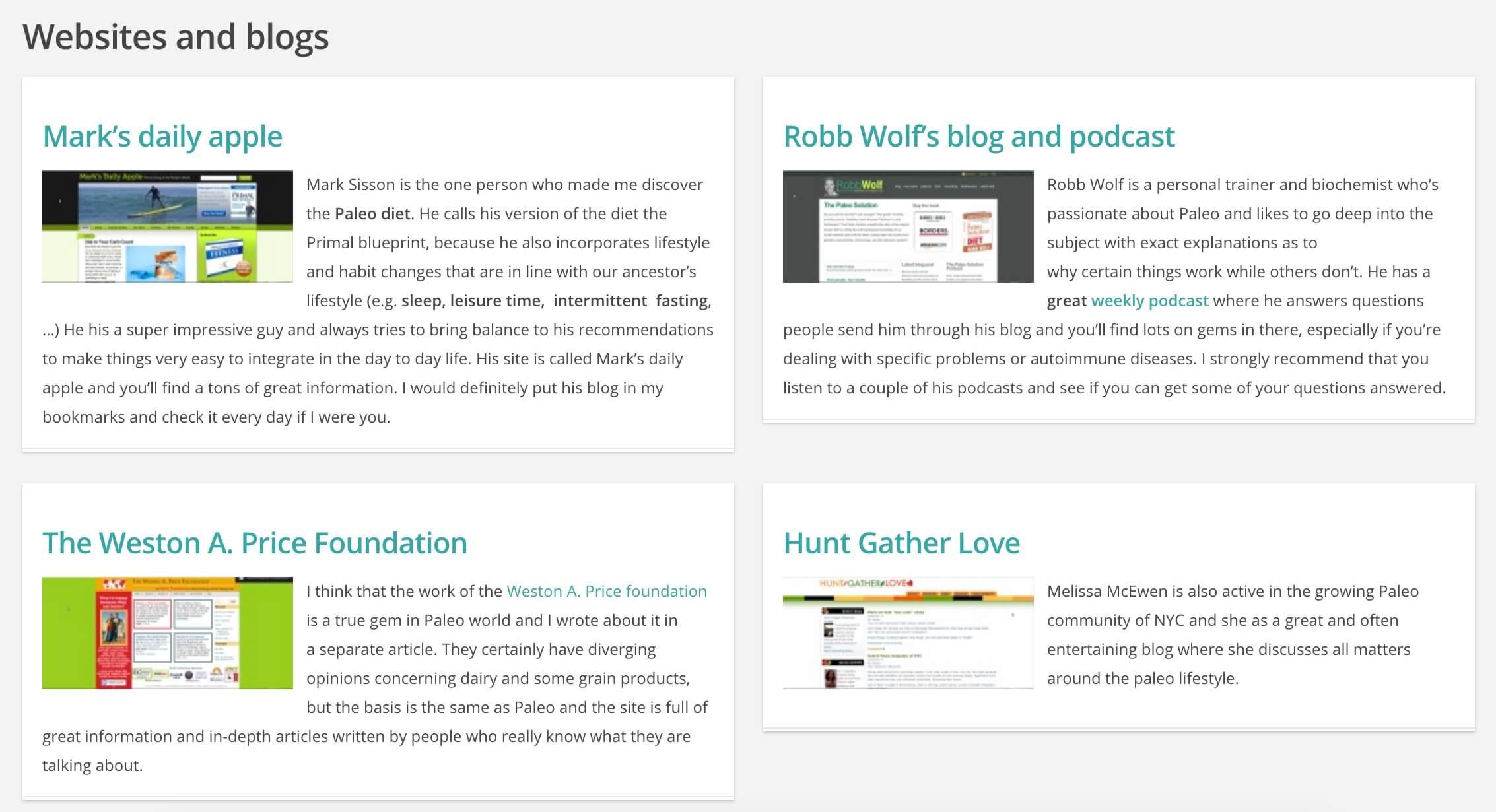
Building a Helpful Resource Site for Fellow Students
Creating a website that serves as a helpful resource for fellow students can be incredibly rewarding. Imagine a space where everyone can share knowledge, tips, and tools that simplify academic life. Here are a few ideas to consider when building your site:
- Study guides and Notes Repository: Collaborate with classmates to create a centralized location for sharing study materials. By allowing students to upload and download notes,you foster a community of support. Consider categorizing by subject to make navigation easier.
- Event Calendar: Design a vibrant calendar that highlights upcoming academic events, workshops, and student organization meetings. This interface can help students stay informed about opportunities for networking and learning.
- Resource Reviews: Create a section for students to review textbooks,online courses,and educational tools. This can guide others in making informed decisions on what to invest in to enhance their learning experience.
- Peer Tutoring Platform: Set up a platform where students can connect with peers who offer tutoring in specific subjects. This feature not only helps those in need of assistance but also allows students to monetize their skills.
- Job and Internship board: Curate listings for job opportunities, internships, and volunteer positions, tailored specifically for students.This can be an invaluable resource for those entering the workforce.
To further enhance the usability of your site, consider incorporating a feedback mechanism. Allowing users to submit suggestions or rate resources can definitely help you continuously improve the content and services offered.
| Feature | Description | Benefits |
|---|---|---|
| study Guides | Central repository of shared notes. | Enhances collaboration and learning. |
| Event Calendar | Highlight academic events and workshops. | Keeps students informed and engaged. |
| Resource Reviews | Student-led reviews of educational tools. | Aids in making informed decisions. |
| Peer Tutoring | Connects students for tutoring services. | Fosters academic support and skills advancement. |
| Job Board | Listings for jobs and internships. | Supports career development for students. |
By developing a resourceful site,you not only help yourself but also create a positive impact on the student community. The connections forged and knowledge shared on such a platform can lead to a more enriching educational experience for everyone involved.

Creating an E-Commerce Platform for Your Crafts or Services
if you’re passionate about crafts or providing services, establishing an e-commerce platform can be a game changer for you as a student. Not only does it offer a fantastic opportunity to earn some extra income, but it also allows you to showcase your creativity and connect with a broader audience.The beauty of an e-commerce site lies in its ability to let your unique talents shine through while providing a seamless shopping experience for your customers.
When creating your online store, consider the following features:
- User-Kind Interface: Ensure your website is easy to navigate. A clean layout with intuitive menus will enhance user experience.
- High-Quality Visuals: Use attractive images of your crafts or services.This is often the first thing customers notice, so make it count!
- Secure Payment options: Offering multiple secure payment methods increases consumer trust and can lead to higher sales.
- Mobile Responsiveness: With so many people shopping on their phones, your site should look great and function well on all devices.
Additionally, consider integrating a blog section to share your creative process, tips, and updates about your products. This not only helps with SEO, making your site more discoverable but also builds a community around your brand.Sharing personal stories can resonate with your audience,encouraging them to support your craft.
To give you a clearer picture of implementation,here’s a simple table outlining essential elements to include in your e-commerce setup:
| Element | description | Importance |
|---|---|---|
| Product Listings | Detailed descriptions with prices and images. | High |
| Shopping Cart | Easy-to-use cart for customer convenience. | High |
| Customer Reviews | Feedback from past customers to build trust. | Medium |
| Contact Information | Clear ways for customers to reach you. | High |
| Social Media Links | Connect with customers on different platforms. | Medium |
Lastly, don’t underestimate the power of marketing your e-commerce platform. Utilize social media to share your creations, engage with potential customers, and drive traffic to your site. Collaborating with other artisans or local businesses can also expand your reach, creating a supportive network that benefits everyone involved.
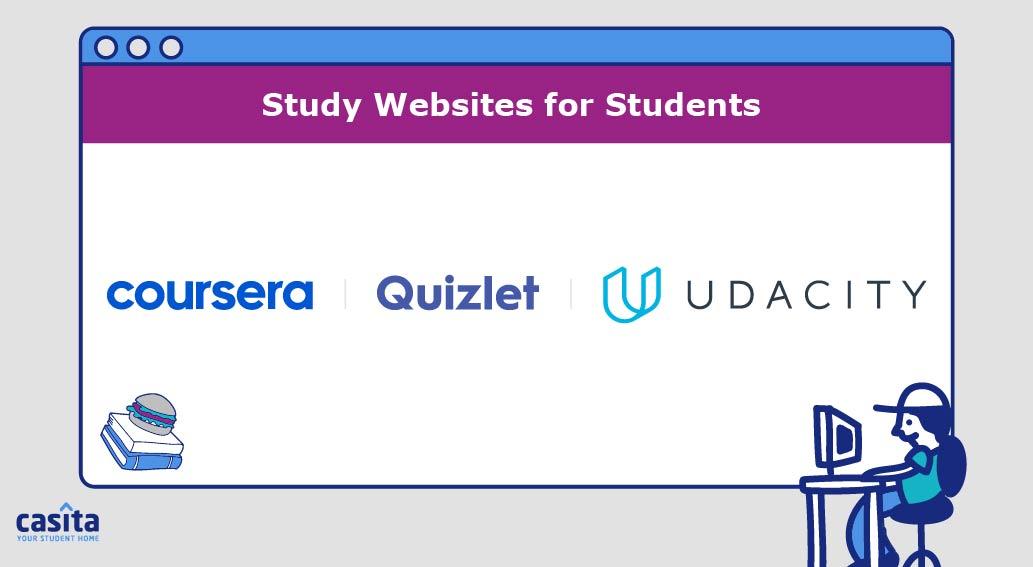
Developing a Study Aid website to boost Learning
Creating a study aid website can be a game changer for students seeking to enhance their learning experience. Imagine a platform that not only provides resources but also fosters a community of learners eager to share knowledge and collaborate. Your website can serve as a centralized hub for all things academic, making it easier for students to find the materials they need to succeed.
To make your study aid website effective,consider incorporating the following features:
- Interactive Study Tools: Integrate tools like flashcards,quizzes,and practice tests that can be customized based on subjects or topics. This interactivity will keep students engaged and enhance their retention of information.
- Resource Library: Curate a vast library of resources including e-books, articles, and videos.Users should be able to easily search and filter content based on their needs.
- discussion Forums: Create spaces for students to ask questions, share insights, and discuss various subjects. This sense of community can motivate students and foster collaborative learning.
- Personalized Learning Plans: Allow users to create their own study schedules and track their progress. This feature can definitely help students stay organized and motivated.
Another important aspect to consider is the design and user experience of your site.It should be visually appealing and easy to navigate. Implement responsive design techniques to ensure it effectively works seamlessly on both desktop and mobile devices. A clean layout with intuitive menus will help users find what they need without frustration.
| Feature | Description |
|---|---|
| Interactive Tools | Flashcards and quizzes for better engagement. |
| Resource Library | Access to a wide range of educational materials. |
| Discussion Forums | Community support through peer interactions. |
| Learning Plans | Customizable study schedules for personal tracking. |
By focusing on these elements, your study aid website will not only provide valuable resources but also create an engaging learning environment that resonates with students. Building a platform that encourages collaboration and fosters a sense of community will set your website apart and make it an invaluable tool for academic success.
designing a Community Forum for Student Engagement
Creating a vibrant community forum tailored for student engagement can be a game changer in enhancing academic and social interactions. Here’s how to make it not just functional but also engaging and welcoming:
Key Features to Include
- User Profiles: Allow students to create personalized profiles showcasing their interests,courses,and achievements.
- Discussion Boards: Set up specific boards for different topics ranging from academics to hobbies, enabling students to share insights and ask questions.
- Event Calendar: Integrate a calendar feature that highlights upcoming events, workshops, and activities that students can participate in.
- Resource Sharing: Create a space where students can easily share notes, links, and study materials.
- Feedback Mechanism: Implement a way for students to provide feedback on forum features and activities, making them feel valued and heard.
Design Considerations
When it comes to design, simplicity and accessibility are key. Ensure that the forum is mobile-responsive, as many students will access it on their smartphones. A clean interface will encourage participation. Consider using a color palette that reflects the schoolS branding while also being visually appealing. Clear navigation should guide users effortlessly throughout the site.
Engagement Strategies
To keep the community active,consider the following engagement strategies:
- Weekly Challenges: Introduce challenges that encourage students to contribute to discussions or share resources.
- Recognition Programs: Celebrate active members with badges or shout-outs on the main page to foster a sense of belonging.
- Monthly Themes: Rotate themes each month that align with academic cycles or seasonal events to keep content fresh and relevant.
Potential Impact on Student Life
A well-designed community forum can significantly enhance the student experience by:
| Benefits | Impact |
|---|---|
| Increased Interaction | Fosters collaboration and peer-to-peer learning. |
| Enhanced Support | Offers a platform for academic help and emotional support. |
| Networking Opportunities | Connects students with similar interests and career goals. |
Incorporating these elements will create a lively, supportive digital environment that encourages student participation, builds camaraderie, and enhances the overall educational experience.
Launching a Personal Development Hub for Self-Growth
In today’s fast-paced world, the pursuit of personal growth is more critically important than ever, especially for students looking to carve their path. By creating a personal development hub, you can curate resources that empower you and your peers to develop essential skills and foster a mindset geared towards success. Imagine a vibrant online space filled with tools, articles, and community support dedicated solely to self-improvement!
Here’s how you can make your personal development hub stand out:
- resource Library: Compile an extensive collection of articles, videos, and podcasts covering topics like time management, emotional intelligence, and study techniques.
- Goal-Setting Tools: Integrate interactive tools that help users set, track, and achieve their personal and academic goals.
- Community Forums: foster a sense of belonging by providing a platform for users to share experiences, seek advice, and motivate each other.
Additionally, you coudl offer personalized development plans based on users’ goals and interests. By utilizing quizzes or surveys, students can receive tailored content that resonates with their individual journeys. This personalized touch not only enhances engagement but also ensures that users find value in returning to your hub regularly.
Consider incorporating a blog section where you share your insights, experiences, and interviews with inspirational figures in the realm of self-growth. This content can stimulate discussions and provide relatable narratives for students navigating their own challenges.
Lastly, don’t underestimate the power of collaboration. Partner with fellow students,educators,or even local businesses to create workshops or webinars that provide hands-on learning experiences. This collaborative approach not only enriches the hub but also extends its reach, drawing in diverse audiences eager for growth.
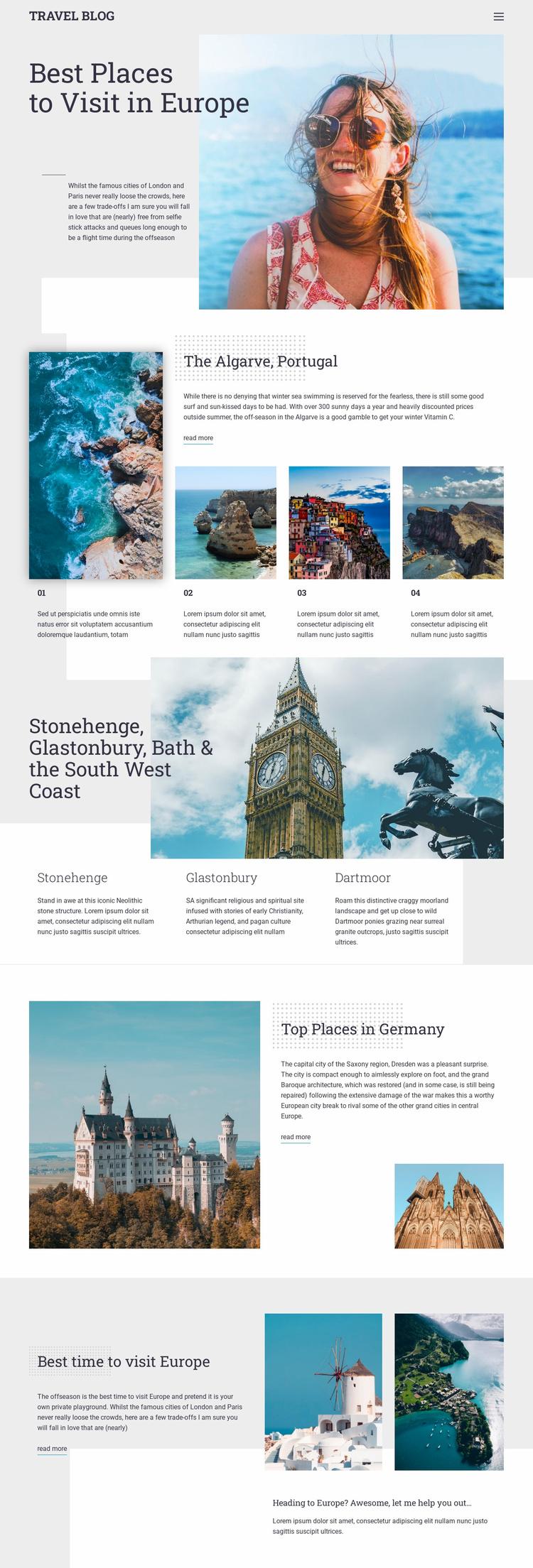
Making a travel or Adventure Blog to Document Your Journey
Starting a travel or adventure blog is not just a great way to document your journey; it’s also an opportunity to share your experiences with a community of like-minded individuals. As a student,you have the unique advantage of being in a phase of life bursting with exploration,whether it’s weekend trips,study abroad adventures,or spontaneous road trips. Your blog can serve as a creative outlet while also helping you connect with others who are eager to here about your travels.
Choosing the Right Platform
When building your blog, selecting the right platform is crucial. WordPress provides a user-friendly interface with countless themes tailored for travel bloggers. Consider these features when choosing your setup:
- Customization Options: Look for themes that allow you to showcase your adventures visually.
- Mobile-Friendly Design: Ensure your blog looks great on all devices, as many users will view it on their phones.
- SEO Features: Optimize your blog for search engines to attract more visitors.
Content Ideas to Engage Your Readers
Your blog’s content is what will keep readers coming back for more. Here are some engaging ideas to consider:
- Travel Diaries: Share daily experiences and emotions during your travels.
- Helpful Guides: Create resourceful guides on destinations you’ve visited,including tips on where to stay,eat,and explore.
- Photo Essays: Capture stunning visuals and tell stories through images.
- Interviews with Locals: Share insights from the people you meet along the way to provide a richer outlook.
Building a Community
Engagement is key in the blogging world. Utilize social media platforms to promote your blog and connect with other travelers. Join travel forums and online communities to share your posts and gain feedback. Ask questions, respond to comments on your blog, and consider starting a newsletter to keep your audience updated on your latest adventures.
Monetization Potential
While your primary goal may be to document your travels,there’s also potential for monetization. As your audience grows, you can explore options like affiliate marketing, sponsored posts, or creating digital products such as eBooks or travel guides. Keep your focus on authentic storytelling and sharing genuine experiences, and the opportunities will follow.
Frequently Asked questions (FAQ)
Q: What are some great website ideas for students?
A: There are plenty of exciting website ideas that students can dive into! Here are five perfect ones: a personal portfolio site to showcase your work, a niche blog that aligns with your interests, a study resource sharing platform, an online store for handmade crafts, or even a community forum for students. Each of these can definitely help you build skills and create something meaningful!
Q: Why should I consider building a personal portfolio site?
A: A personal portfolio site is essential for showcasing your skills and projects to potential employers or clients. It allows you to present your work beautifully, making a strong first impression. Plus, it’s an excellent way to practice web design and development skills that are valuable in today’s job market!
Q: What if I’m not an expert in a specific niche for a blog?
A: That’s perfectly fine! Many successful blogs are written by individuals who are learning alongside their readers. You can document your journey in a subject you’re passionate about—whether it’s cooking, tech, travel, or even student life. Authenticity resonates with readers, and providing fresh perspectives can attract a loyal following.
Q: How can I create a study resource sharing platform?
A: Think about the subjects or topics you excel in. You can build a website where students can upload and share notes, study guides, or practice exams. This not only helps you reinforce your knowledge but also creates a valuable resource for others.Collaborating with classmates can make it even more dynamic!
Q: Is starting an online store worth it as a student?
A: Absolutely! If you have a talent for crafting or creating unique products, an online store can be a fun way to earn some extra cash.It teaches you about e-commerce, marketing, and customer service—all essential skills in any career. Plus, it’s incredibly rewarding to see your creations appreciated by others!
Q: What’s the benefit of creating a community forum for students?
A: A community forum can be a fantastic way to connect with fellow students. It’s a space for discussions, advice, and support on various topics. Not only does it enhance your dialog and organizational skills, but it also fosters a sense of community.And who knows? You might create the next go-to platform for students at your school!
Q: How do I get started with any of these website ideas?
A: start by outlining your goals and what you want to achieve with your website. Then,choose a platform that works for you—like WordPress,Wix,or Shopify for online stores. Don’t be afraid to experiment and learn as you go; every step is a learning opportunity. Remember, the key is to take that first step and just start building!
Q: Can these websites help me in my future career?
A: Definitely! Each of these website ideas not only enhances your resume but also demonstrates initiative, creativity, and technical skills. Employers love seeing candidates who take the time to develop personal projects. Plus, you’ll gain practical experience that can set you apart in a competitive job market. So, go ahead and choose an idea that excites you, and start creating!
Closing Remarks
And there you have it—five perfect website ideas that can not only boost your skills but also serve as impressive additions to your portfolio! Whether you choose to create a blog to share your passions, a portfolio to showcase your talents, or an online store to dip your toes into e-commerce, the possibilities are endless.
Remember, every great web project starts with that first step, so don’t hesitate to dive in. Embrace the learning curve, experiment with design and functionality, and let your creativity shine. You’ll not only gain valuable experience but also have something tangible to show for your efforts.
So, what are you waiting for? Grab your laptop, brainstorm your ideas, and start building your very own website today. Your future self will thank you! And who knows? This could be the beginning of your journey into the exciting world of web development.Happy building!

